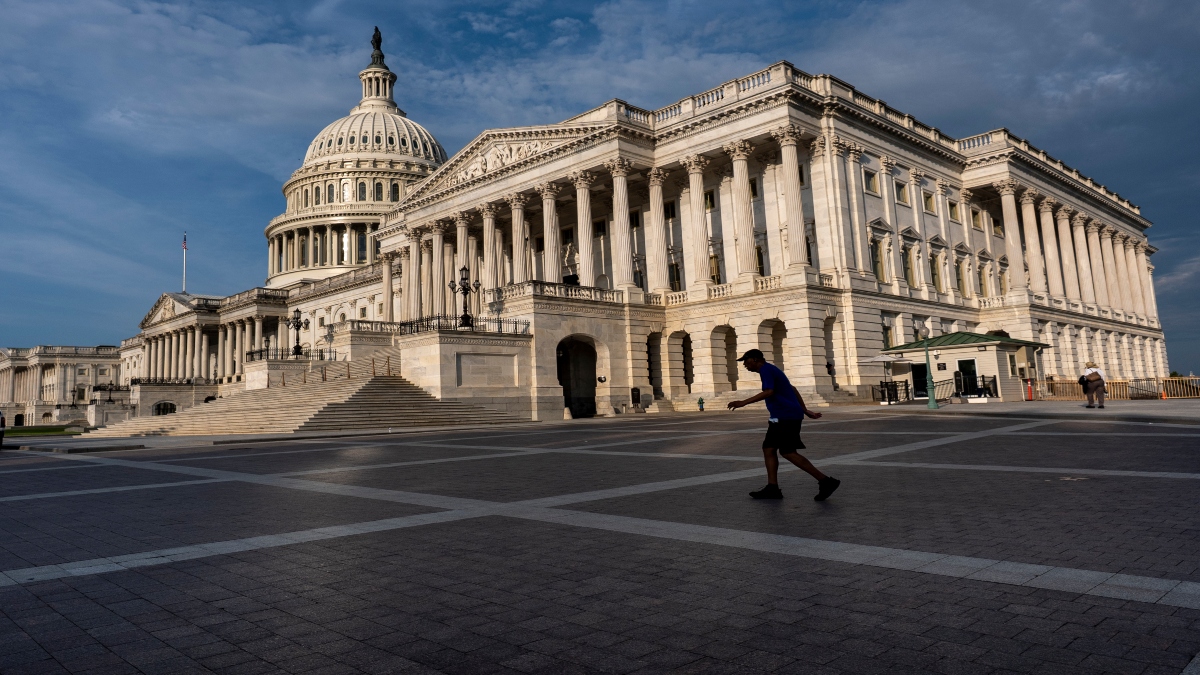Following a weekend of negotiations and delays, the Senate has begun its marathon voting session on President Donald Trump’s sweeping domestic policy bill.
According to a CNN report, speaking to reporters as the session got underway Monday morning, Senate Majority Leader John Thune said, “hopefully we’ll know soon enough” whether Republicans have the votes to push the bill through.
“This may take a little while,” he added.
The session, known as a vote-a-rama, involves hours of back-to-back votes on a range of amendments, some symbolic, others substantive.
It offers Republicans a final chance to tweak the bill and gives Democrats an opportunity to highlight GOP vulnerabilities and force tough votes that could resurface in campaign ads later, added the report.
Trump’s multitrillion-dollar bill aims to cut federal taxes, boost funding for the Pentagon and border security, and scale back safety-net programmes like Medicaid.
Democrats are expected to target these Medicaid cuts as a central line of attack. On Saturday, they delayed proceedings by forcing clerks to read the entire bill aloud, a process that took over 12 hours before debate continued into early Monday.
Senators returned at 9 am ET to begin offering amendments, facing a tight deadline. Trump has demanded the bill reach his desk by July 4, but it must return to the House if passed by the Senate.
Impact Shorts
More ShortsSeveral Republicans are keeping a close eye on potential changes to the bill’s Medicaid provisions.
The Senate’s version of President Trump’s domestic policy bill would leave 11.8 million more people uninsured by 2034, according to a Congressional Budget Office (CBO) report released over the weekend, nearly a million more than the 10.9 million projected under the House version, reported CNN.
Both versions propose historic cuts to Medicaid, which covers over 71 million low-income Americans, including children, seniors, and people with disabilities.
The Senate bill would slash federal Medicaid funding by $930 billion over 10 years, compared to $800 billion in the House bill, according to the report, citing CBO estimates mentioned by Sen. Ron Wyden.
The Senate plan includes stricter work requirements, applying them to able-bodied adults ages 19–64, including parents of children over 13. The House version exempts parents of dependent children.
The Senate bill also lowers the cap on provider taxes in Medicaid expansion states and raises reimbursement rates. In contrast, the House version would freeze existing provider taxes. Both bills also make changes to the Affordable Care Act expected to reduce enrollment.
Increase to the deficit
The Senate’s first vote Monday focused on a procedural dispute over how to calculate the bill’s cost—specifically, whether to use the “current policy baseline” or the traditional “current law baseline.” Though technical, the decision could reshape how future tax bills are scored.
President Trump and GOP leaders, including Senate Finance Chair Mike Crapo, backed the “current policy” method, which downplays the bill’s deficit impact by assuming the 2017 tax cuts will be extended beyond their scheduled expiration.
But the Congressional Budget Office stuck with its standard “current law” approach, which assumes those tax cuts will expire. Using that method, the CBO estimated the Senate bill would add nearly $3.3 trillion to the deficit over the next decade, significantly more than the House version.
The Senate version is costlier in large part because it contains bigger tax cuts, while shrinking some of the spending cuts and revenue raisers, said Marc Goldwein, senior policy director at the Committee for a Responsible Federal Budget, a watchdog group.
For instance, the Senate bill would make permanent three corporate tax breaks that were part of the 2017 law and would lessen the cuts to the food stamp programme.
“They expand the giveaways and shrink the takeaways,” Goldwein told CNN.
Using the current policy baseline, the Senate version would cost roughly $508 billion over the next decade, according to a separate CBO estimate released Saturday night.
With inputs from agencies


)

)
)
)
)
)
)
)
)



